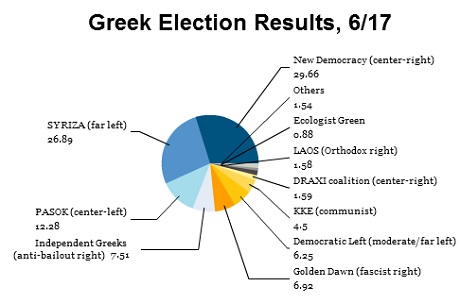As noted in the immediate aftermath of Sunday’s parliament elections, the French left looked likely to take a narrow absolute majority of seats in the Assemblée nationale.![]()
As it turns out, the Parti socialiste of François Hollande did even better — it and its allies took 314 seats, not including the 17 seats that its electoral partner, France’s Green Party (Europe Écologie – Les Verts) won: significantly higher than the projection of between 270 and 300 and nearly equivalent to the parliamentary wave after Nicolas Sarkozy’s 2007 election. In this sense, Hollande’s party actually outperformed Hollande in the presidential race.
But the left’s victory was expected — the pattern of French voters handing a solid presidential majority in June parliamentary elections (following the May presidential runoff) therefore continues.
It will mark the first time that the French left have won control of the government since the 1997 legislative elections; the left lost power in 2002, following Jospin’s surprise third-place finish in the presidential election of that year.
With the final results now counted, here’s a look at each party and its road ahead:
Continue reading Final thoughts on French parliamentary runoff results


